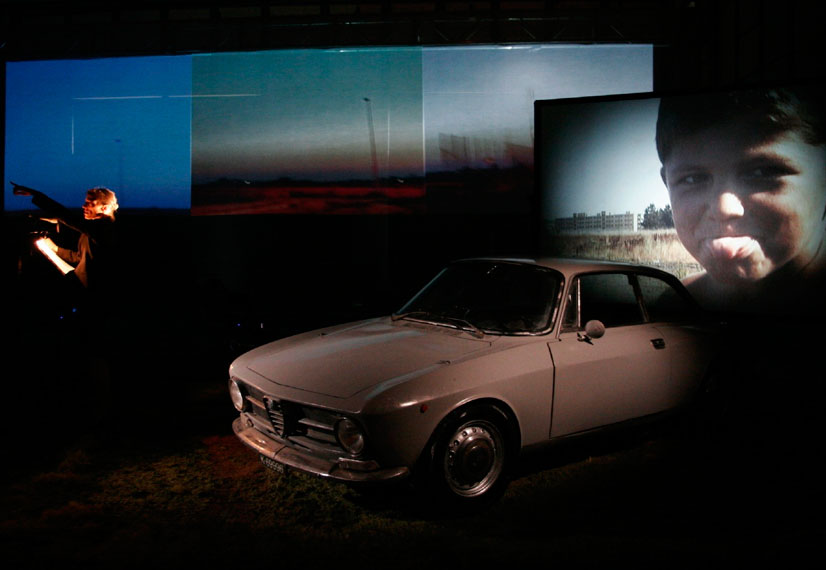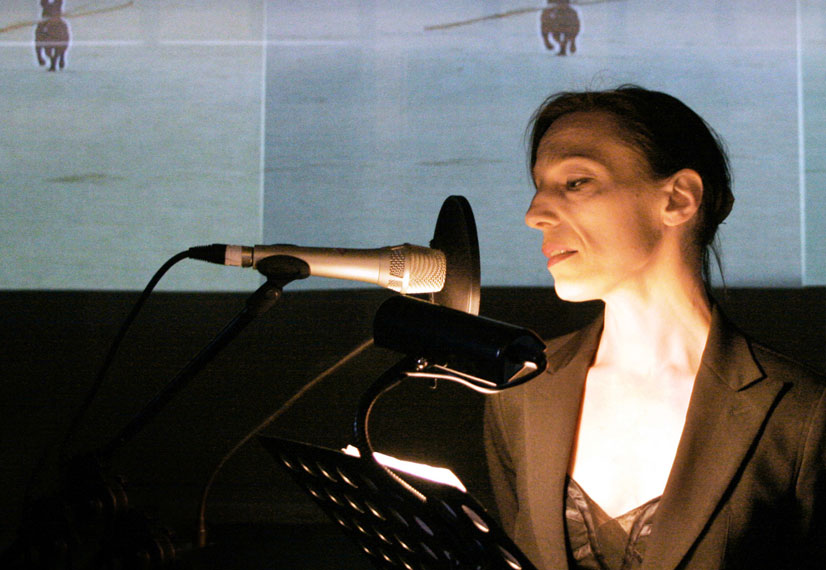
©Diego Beltramo
Wandering from art to art, from one expressive medium to another, always in search of something more authentic, vital, within that here and now so much enunciated and chased in thirteen years of activity, another encounter: Pier Paolo Pasolini.
After the Rooms project, with which we undertook an anomalous and unprecedented research on the word, on a suffered orality always poised between aphasic renunciation on the one hand (Twin Rooms), and a taste for the rhythmic nature of the text (Splendid’s by J. Genet), we chose to turn to that “poet of things” that is Pier Paolo Pasolini… to his caustic critical gaze on the contemporary. For Motus, it is then a duty to question, through theater, the current political moment, now that so many reflections on consumer society and political life in general elaborated by Pasolini are taking on a shocking, almost prophetic relevance.
We have chosen to give voice to his voice, to host again his cries of alarm, amplifying them even, with a peculiar mixture of means that, perhaps, in the days of his theatrical experiences, were not conceivable.
Given his fascination with cinema, it seemed inevitable to us to pay attention to his fundamental reflections on montage, which he placed side by side by necessity with literature and theater, supporting them with a robust and thorough semiological reworking precisely regarding the relationships between these expressive realms:
” …for me therefore theater and cinema are very close to each other. The difference is that theater is a kind of piano-sequence, but it has several common features with cinema: both represent reality with reality, the body is represented with the body, an object with an object…when I write a scene for the theater, this scene is also a cinematic scene… “ From “Pasolini on Pasolini, conversations with Jon Holliday,” Guanda, Parma, 1992


